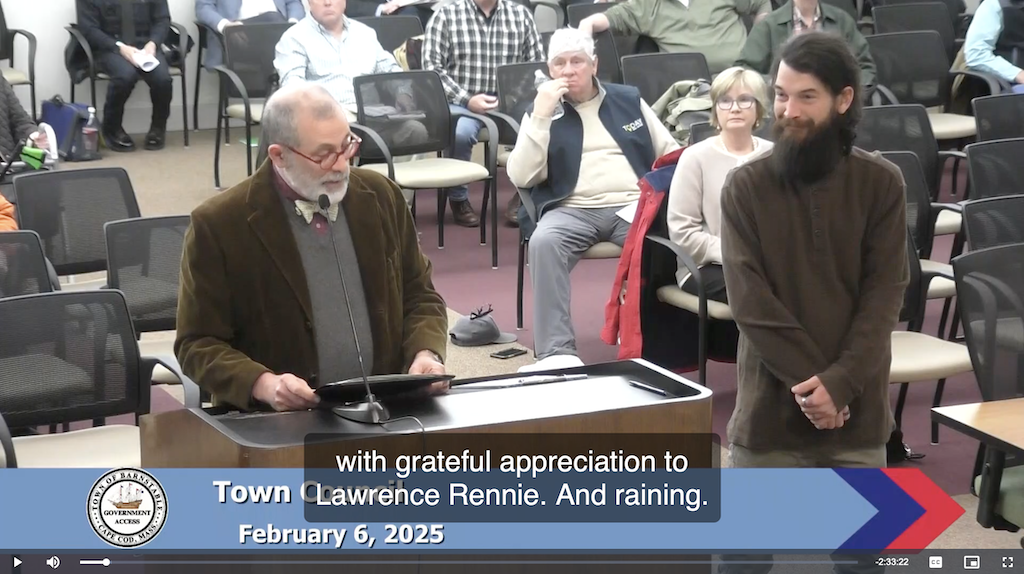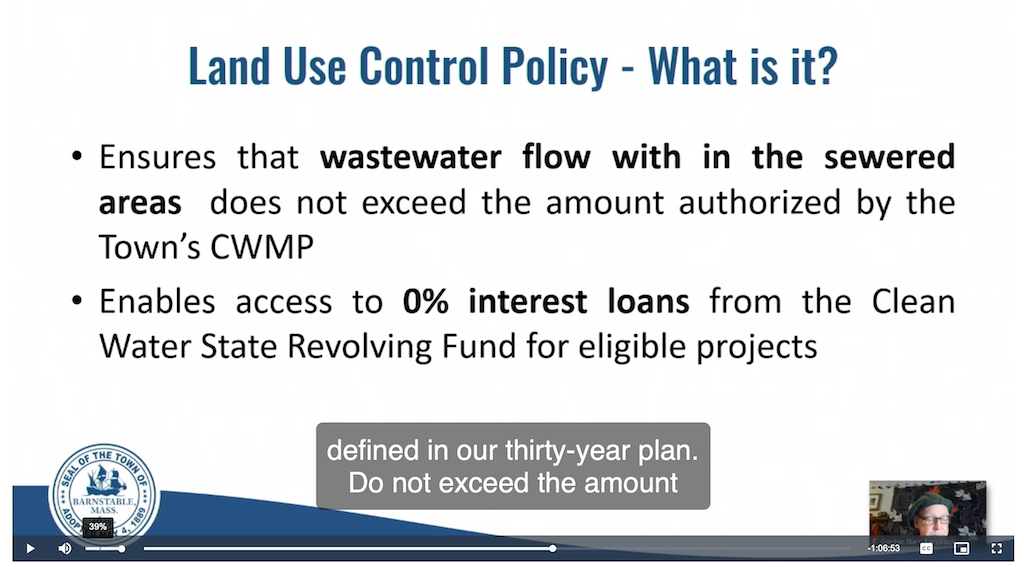Town Council | Feb. 6, 2025
The meeting covered a wide range of topics, including public comments, staff reports, and votes on various agenda items. The primary focus was on the Comprehensive Wastewater Management Plan (CWMP) and a proposed flow-neutral land use policy to secure low-interest loans for wastewater projects.


The meeting covered a wide range of topics, including public comments, staff reports, and votes on various agenda items. The primary focus was on the Comprehensive Wastewater Management Plan (CWMP) and a proposed flow-neutral land use policy to secure low-interest loans for wastewater projects.
Watch the meeting. AI generated summary of meeting video below. Corrections are welcome; see contact page.
Key Points:
- Public Comments: Numerous residents expressed concerns about overbuilding, the impact of affordable housing on town resources (police and fire services, water and wastewater infrastructure), and the need for greater transparency in the housing production plan. Specific concerns were raised regarding the high number of police and fire calls to a new affordable housing development.
- Employee Commendation: Lawrence Reeney, a transfer station employee, was commended for his quick thinking and actions in saving a woman injured in an accident.
- Comprehensive Wastewater Management Plan (CWMP): A significant portion of the meeting focused on the CWMP's financial model and the potential implementation of a flow-neutral land use policy. The policy aims to limit wastewater flow to the capacity of the existing and planned sewer infrastructure, enabling the town to access low-interest loans for wastewater projects. A detailed financial analysis was presented, exploring various scenarios (including economic recession and cancellation of a wind project) and their impact on the town's budget.
- Cape Light Compact Update: Maggie Downey provided an update on the Cape Light Compact's energy efficiency programs, highlighting initiatives to promote decarbonization, equity (particularly for renters and moderate-income households), and improved customer service. New programs were announced, including the Energy Saver Home Loan and a Cape and Vineyard solar loan product.
- Flow-Neutral Land Use Policy: A detailed discussion ensued regarding the proposed flow-neutral policy. Concerns were raised about its potential impact on growth and the implications of a “first-come, first-served” approach to sewer connections. The council ultimately decided to move forward with developing a land use control policy based on the CWMP's projected flow capacity. Flow-Neutral Presentation: "How Does The Town Achieve 0% Financing For Wastewater Projects?" Summary below.
- Other Agenda Items: The council also approved funding for a jail diversion program, appointed members to the standing appointments committee, and referred the 2025 Housing Production Plan to a public hearing. They also delegated authority to the town manager for two National Grid projects and authorized a grant of an easement for gas facilities.
Summary of Flow Neutral Land Use Policy Presentation
How Barnstable Can Achieve 0% Financing for Wastewater Projects
The Town of Barnstable can access 0% interest loans from the Clean Water State Revolving Fund for eligible wastewater projects. To qualify for this funding, the Town must implement a Land Use Control Policy that limits wastewater flow within sewered areas to the amount authorized by the Town's Comprehensive Wastewater Management Plan (CWMP).
Key Requirements for 0% Loan Eligibility:
The project must primarily focus on remediating or preventing nutrient enrichment of surface water bodies or water supply sources.
The Town must not be in violation of any nutrient-related standards.
The Town must have a MassDEP-approved CWMP.
The project must be consistent with regional water resources management plans.
Land Use Control Policy:
This policy ensures that wastewater flow within sewered areas does not exceed the capacity of the sewer infrastructure.
It can be a simple ordinance that states the Town's wastewater flow will not exceed the capacity of the sewer infrastructure.
Underlying zoning can serve as the primary mechanism for land-use control.
Wastewater flow can be assigned on a first-come, first-serve basis within sewered areas.
Examples:
The Town of Harwich follows a simple land use control model.
Other Cape Cod towns with approved Land Use Control Policies include Chatham, Falmouth, Harwich, Mashpee, Sandwich, and Yarmouth.
Next Steps:
Staff should begin creating a Land Use Control Policy for Town Council consideration.
